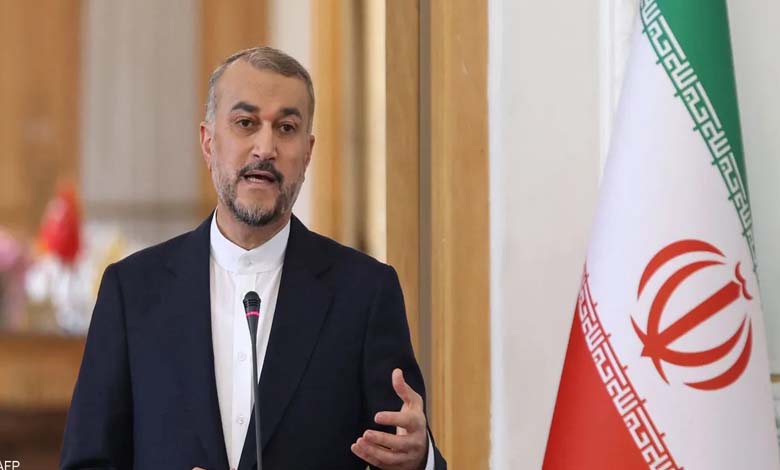Will Iran Abandon Its Revenge Against Israel in Exchange for a Gaza Ceasefire?

As the world awaits Iran and its allies’ response to Israel, questions arise about whether Tehran can be persuaded to abandon its retaliation in exchange for tangible progress in Gaza talks.
-
How the Brotherhood’s Media Handled Haniyeh’s Assassination: Has Hamas Lost Its Importance to the Brotherhood?
-
New Details on Haniyeh’s Assassination: What is the Involvement of Mossad and Iran’s Revolutionary Guard?
This was the hope among regional leaders gathered at an emergency summit in Jeddah.
On Wednesday, tensions gripped the region following reports of canceled flights over Iran and its neighbors, amid fears that missiles could be launched at any moment, potentially leading to a frightening escalation of the ongoing Israeli war on Gaza, now in its eleventh month.
Since the assassination of Hamas’ political bureau chief, Ismail Haniyeh, in Tehran last week, Iranian officials, led by Supreme Leader Ali Khamenei, have vowed to retaliate against Israel, which they accuse of being responsible for the incident, although responsibility has not been confirmed or denied.
-
The Assassination of Haniyeh Puts 20 People Under Arrest and Investigation in Iran: What Does This Mean?
-
From Yassin to Haniyeh… Key Hamas Leaders Targeted by Israel
According to CNN, an Organization of Islamic Cooperation meeting in Jeddah was convened to help prevent the situation from deteriorating into a broader conflict.
In a statement after the meeting, Jordanian Foreign Minister Ayman Safadi said that “the first step toward de-escalation is to address the root cause, which is the ongoing Israeli aggression against Gaza.”
Safadi had been in Tehran over the weekend, where he met with interim Iranian Foreign Minister Ali Bagheri and new Iranian President Massoud Pezechkian.
-
Tough-Talking Haniyeh Was Seen as the More Moderate Face of Hamas
-
Ismail Haniyeh Renews His Rejection of Excluding Hamas from Any Settlement Regardent Gaza’s Future
Different Circumstances
In contrast, efforts are underway to persuade Israeli Prime Minister Benjamin Netanyahu to soften his stance in ceasefire negotiations with Hamas.
Although these efforts are not new, current circumstances could lead to a change compared to previous attempts, according to the same source.
Suddenly, after an Israeli leak suggested that Gaza ceasefire negotiations had hit a dead end, negotiations resumed with renewed vigor.
-
Ismail Haniyeh Renews His Rejection of Excluding Hamas from Any Settlement Regardent Gaza’s Future
-
Iran seeks to spread chaos with the help of Nasrallah and Haniyeh – Details
Netanyahu‘s office announced yesterday, Thursday, that it would respond to the request of leaders from the United States, Egypt, and Qatar by sending a delegation to continue negotiations in mid-August.
U.S. Secretary of State Antony Blinken said two days ago that the United States and its allies had directly informed Israel and Iran that “no one should escalate this conflict.”
He added that Gaza ceasefire talks had entered a “final phase” and could be jeopardized by further escalation elsewhere in the region.
-
Leaks from the Secret Meeting: Iran Refuses to Support Hezbollah and its Iraqi Militias Against Israel
-
Intense Cyber War Between Israel and Iran
“Diplomatic Cover”
However, according to the American network, “Tehran needs diplomatic cover to retreat from its threats against Israel following Haniyeh‘s death.”
It added that “a ceasefire in Gaza would allow Tehran to claim that it cares more about the lives of Palestinians in Gaza than about revenge.”
French President Emmanuel Macron also added his diplomatic weight, stating in a phone call with Pezechkian on Wednesday that revenge against Israel “should be abandoned.”
-
Washington Tests Military Capabilities Amid Escalation Between Israel and Iran
-
Israel Caught Between Rafah and Iran.. Will it Break the Pressure Barrier?
Pezechkian responded cautiously, saying: “If the U.S. and Western countries truly want to prevent war, they must immediately stop selling weapons, supporting Israel, and force it to a ceasefire in Gaza.”
As the Israeli war on Gaza enters its eleventh month, with nearly 40,000 Palestinian casualties, the end of the conflict remains unclear.
For the Gaza ceasefire plan to succeed, Netanyahu must also be convinced, according to CNN.
-
Israeli Army and Mossad Agree on Plans to Strike Iran
-
Israeli Movements to Confront Iranian Threat: Reservist Call-up and Communication Jamming
But the change, if it is to happen, according to the consensus of the Organization of Islamic Cooperation, must come from outside, from the only person with the influence to calm Netanyahu, U.S. President Joe Biden.
However, after nearly a year of conflict, Biden is refusing to confront the most hardline and right-wing Israeli government in its history, which also adds to the frustration.
-
Iran explores details of anticipated exchange deal between Hamas and Israel
-
Iran warns Israel and the United States of “escalation beyond control”
Can Hezbollah Act Alone?
With the departure of the interim Iranian Foreign Minister to Tehran after a four-hour emergency meeting, attention has slightly shifted back to Hezbollah, which also intends to retaliate for the assassination of its top military commander, Fouad Chekib, in Beirut just hours before Haniyeh‘s death.
An American official and a Western intelligence official told CNN that concerns about Hezbollah taking action are now higher than those of Iran, raising the possibility that the group might act independently of Iran.
-
Naim Qassem dismissed the prospect of an escalation of violence between the Iran-backed party and Israel
-
Confessions of an Israeli Soldier: We Destroyed Homes in Gaza for “Trivial Reasons”
Aside from direct exchanges of fire between Iran and Israel in April, Hezbollah has been striking Israel and could this time launch a double attack, one for Chekib and one for Haniyeh, the Hamas leader.
If so, Israel’s response to Hezbollah could quickly escalate into a regional conflict drawing Iran into the fray, which is feared by all, according to the American network.












